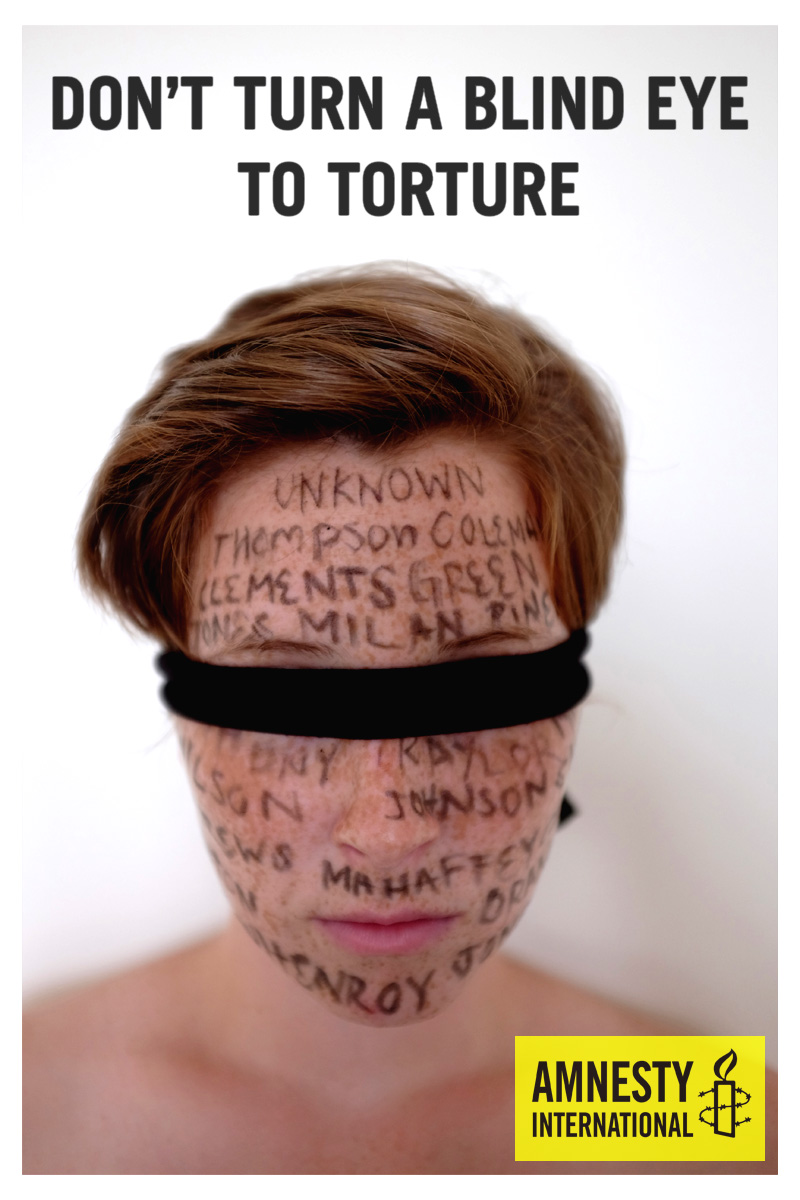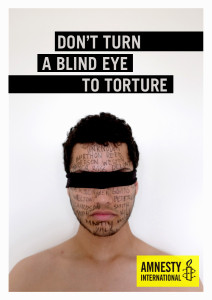
By Federico Boratto, Amnesty International Activist
My name is Federico Boratto. I’d like to share my connection to Amnesty’s Stop Torture Campaign – a connection forged by someone who loved me enough to share their experience with me.
On the first day of my internship at Amnesty International USA, when I learned about the global Stop Torture Campaign I could immediately feel my heart beat faster. I knew that I needed to be part of it.
The global effort to stop torture is an incredibly powerful and important undertaking. When one can intellectually understand the true horror of torture, the urgency of Amnesty’s work becomes clear. But another more personal reason also had a strong impact on me.
I grew up in Italy, raised by Argentine parents. I found continuous acceptance in this multicultural environment and was constantly reminded that difference is something to celebrate, not something to be afraid of.
 My parents, however, did not come to Italy of their own volition. They were forced to flee their home country during what is now known as the “Dirty War,” a period of state-sponsored terror during the Argentinian dictatorship from 1976 to 1983.
My parents, however, did not come to Italy of their own volition. They were forced to flee their home country during what is now known as the “Dirty War,” a period of state-sponsored terror during the Argentinian dictatorship from 1976 to 1983.
Since I was an early teen, I clearly remember my parents explaining to me the meaning of injustice, the importance of respecting others and how much valuing human rights was a key part of life.
When I was still young, I couldn’t truly understand the significance of those words, the deep meaning that those phrases had for my parents. As I grew older, however, my curiosity about their past grew. I started asking, “Why are words like ‘justice’ and ‘human rights’ so important?”
I learned that during the Argentine “Dirty War,” the military junta led by Jorge Rafael Videla had not only stifled the rights to freedom of speech and assembly, but also oversaw other widespread and systematic human rights violations, including torture, “disappearances” and extrajudicial executions on a grand scale. During Argentina’s military rule the security forces abducted, tortured and killed around 30,000 people.
During a very emotional explanation, where voices cracked and tears streamed down their faces like I had never seen before, I finally understood my parents’ experiences, what had happened to them and to the people they loved.
At that moment, torture had become a reality. A reality that wasn’t only a voice in the wind from faraway which I accepted as “another atrocity,” but a tangible presence in my past, in my conscience and for the people I hold most dear – my family.
At first, it was difficult to process. A palpable desperation and anger went through me, not only for my loved ones, but also because something this horrifying could happen and continues to happen.
Ultimately, however, my desperation and anger has evolved into a deep resolve to making every human being’s right to live free from torture a reality.
So, on June 26, the International Day in Support of Victims of Torture, I will be raising my voice in the global call to #StopTorture. I will be calling for justice and reparations for torture survivors, from Mexico City to Chicago.
I will not be silenced because, for me, torture is personal. I hope you will join me.
Why is stopping torture important to you? Tell your own story: leave your comments below.
